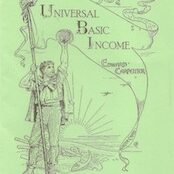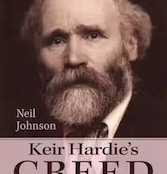As the shock of the Bradford West by-election defeat fades, BARRY WINTER argues that we must learn the lessons if Labour is to rebuild a vibrant local politics.
“We wanted to punish the Labour Party”. That’s how a Bradford-based, Muslim student explained George Galloway’s by-election victory to me. Asked for the reasons why, he said: “Because of the invasion of Iraq”. That was some time ago I pointed out, so why now? “Because this time we could do it without putting the Tories in,” he declared.
He went on to claim that people also wanted to punish the local Labour Party for its “corruption”. This is common knowledge in the Muslim community, he argued (and, as I subsequently found out, it also has a wider resonance in the city). Of course, in itself this does not count as evidence. However, it certainly needs investigating and, if true, remedying. What is for sure and is widely acknowledged is that Labour has been run by an inner circle of Kashmiri men. In parts of the city, they have been the gatekeepers who decided the party’s election candidates.
Answering my question about George Galloway’s political reliability, I was told that his actions would be closely watched. People around him would ensure that he conducted himself according with their wishes. I have also heard similar assurances from others in and around Respect. Anne Cernik, the journalist speaking at a Leeds Taking Soundings meeting, made the same point. She argued: “He’s on trial. If he doesn’t deliver, they will get rid of him.” It remains to be seen whether such optimism is well founded. However, the comments show people’s awareness that it might be or become an issue.
Lessons to learn
Of course, there is another side to the picture: whatever others may think about George, he was received remarkably well in the city. Many people clearly loved him. He was able relate to them in ways that others have not done before. Many were enthused and energised by him. I’ve seen the photographs of people wanting to shake his hand, or simply to touch him, or just get near to him. I say this with zero enthusiasm for the man personally.
If anything, the Bradford West result echoes of the success of the charismatic, Victor Grayson in the 1907 Colne Valley by-election. Against the wishes of the national Labour party leadership, local activists thought the world of Grayson and enthusiastically supported his candidacy. He certainly drew the crowds but, in his case, he later let them down.
So, whatever one’s views about Bradford’s newest MP, it is important to try to understand what happened: to see what might be learnt. Was it a flash in the pan or a sign of things to come? It is too soon to know but, even if it turns out to be more of the former, we still need to have a better understanding. After all, the by-election was quickly followed by local elections when six Respect candidates won seats, some with a much higher proportion of the vote (58 per cent) than Galloway. Add to that the chaotic nature of Respect’s organisation (and that comes from one of its members), this is quite an achievement. Later I later met one of the new councillors at a political event, a white woman in her early 30s, and was impressed. She is exactly the sort of person you would hope to find in the Labour Party.
What we learn generally starts from where we stand politically. So I was intrigued to hear the discussion at the Leeds Taking Soundings meeting. After a lively and informed presentation some talked quite eagerly about uniting to fight elections. Presumably, some imagine that with a bit of effort similar results can be had elsewhere. Respect will be thinking along similar lines and Manchester has been mentioned as one possibility. It was left to me to point out while that they might not always win they could do sufficiently well to put the Tories in.
What’s for sure is that the by-election should be a wake-up call for the Labour Party nationally, as well as locally. Ed Miliband’s rail tickets had already been booked for the victory celebration. The result put a damper on generally favourable results for Labour in the North. Instead the party leader was to take a more humbling trip some days later at the invitation of the Bradford Muslim Women’s Council. It appears he did creditably well but he certainly had to listen to some strong criticisms about the local party and its treatment of women
Wake-up call
What clearly stands out is that support for Respect came from two main sources: young people and women. Unfortunately, not much has been heard in relation to the youth vote. But quite a lot attention has been given to the role played Muslim women in the by-election and local elections. It has become clear that they were not only rebelling against the established ways of doing politics which marginalised them: they were out on the streets campaigning. They were talking to women, Muslim and others, taking their kids to school; they were knocking on doors. They were organising political events which were full of fun and celebration. In this sense, it is reminiscent of earlier decades when elections were lively, public events involving communities. These are precisely things that the Labour Party needs to revive but that depends on securing enthusiastic, rather than grudging, support. Not easy to achieve but no less necessary.
It should be said that Bradford party should not be singled out exclusively for its failings. This is a wider issue about how party politics has been conducted. For example, I recall a meeting many years ago in my Labour Party branch in Leeds when some Muslim elders attended. They had come to complain about women and children being racially abused on their way to school. Some of us suggested that the party members meet with the community to discuss how best to tackle the issue. Neither the Labour councillors nor the elders wanted that. No, they said, leave it to them to fix. So a chance to build stronger direct links between the party and the community was lost. Instead the interests of the political and community gatekeepers were reinforced.
Then there was the occasion when a white councillor ensured he won the vote by filling the room with Muslim men who behaved as instructed and then departed. One can only speculate about whether there was another side to the deal.
Fresh start
Galloway’s election leaflet, ‘Battling for Bradford’ offered a fresh start. He encouraged pride in the city and its “rich cultural diversity. He celebrated the city’s “friendly and talented people” and its “vibrant arts scene”. He noted that Bradford has “a central place in the history of the labour movement”. He also recognised that it “suffered neglect and poverty” with “shameful levels of child poverty,” promising to fight for a better future
His success, I would suggest, was because he offered hope and made people, particularly the young and women, feel valued. He promised much and that is always easier than delivering. But valuing people – rather than taking them for granted electorally – is both important in itself and electorally. Politics in the UK and elsewhere is becoming more fluid. The old ways of doing business won’t do. Taking voters for granted is less and less likely to secure their support, and particularly their active engagement.
On the other hand, to make people feel that they count, in a society that usually does the opposite, requires that you have to deliver on those promises or apologise when you fail. Whether or not George Galloway lasts the course is an open question. Far more importantly, it is the people of Bradford West who have raised issues with a much wider political resonance. It is they who have taught some important, political lessons.



3 July 2012
The key to effective engagement is to take an interest in the local and parochial as well as the national and international, and to work very very hard in specific localities talking to people, sorting out their problems and advocating on their behalf. At the end of the day, it comes down to the hard slog, the preparedness to deal with the mundane day in, day out and to understand why it matters.
Whether Galloway can do that over time is questionable because, when all is said and done, he seems to me to be a self-publicist.